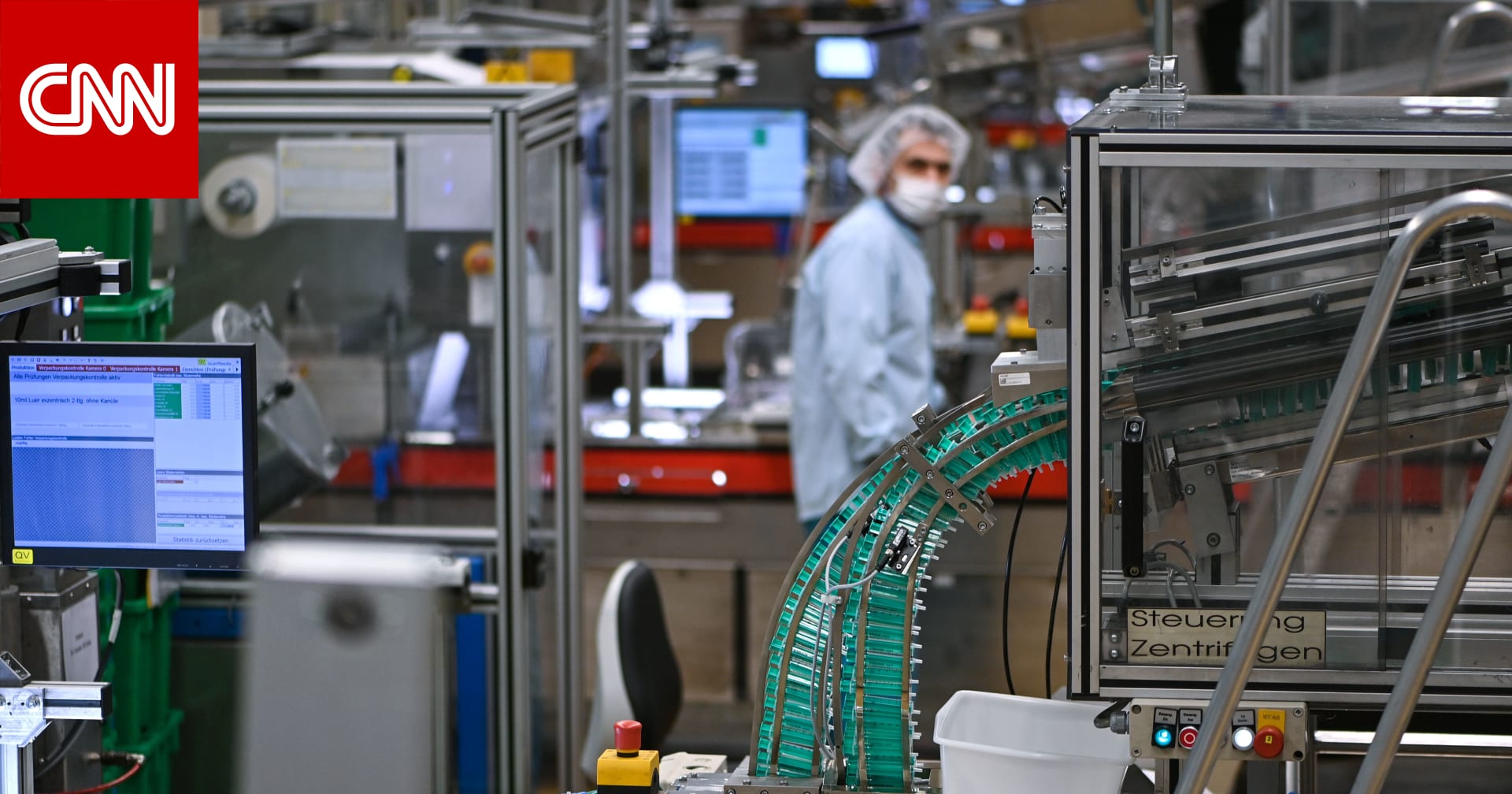This article was written by Dr. Habib Al-Mulla, CEO of the United Arab Emirates law firm “Baker MacKenzie-Habib Al Mulla”. The opinions below are those of the author and do not necessarily reflect those of CNN.
Here is the year 2020, preparing to leave, collecting its papers, after it has blown humanity in a way that we have never seen in our contemporary life. The pandemic has not only hit the world’s economies in killing and stopping the movement of goods, money and people, causing the collapse of health systems and the death of millions, but also tearing apart the social fabric when it imposed complete isolation on humans and launched the term social distancing as a duty in our social life in a desperate attempt to stop the spread of the pandemic.
If we focus on the economic aspect, most observers and analysts were and are still largely pessimistic about the possibility that the economy will recover at the global level soon. We did not find anyone talking about the possibility of the economy recovering according to scenario V. Most analysts expect that the economy will take a long time until it reaches the stage of recovery from the effects of prejudice, and they expect the U or the W scenario for recovery.
However, we need to conduct a review of the situation according to the current data in order to be able to arrive at a correct assessment of the extent of the economic recovery potential and in what period of time. I will not try to address the global economy because there are specific data that influence and control it, and these data differ from one country to another. I will content myself with providing my views on the prospects for economic recovery in the United Arab Emirates.
And like any other economy, the economy in the UAE has been affected by the pandemic and its effects, whether it is represented in the decrease in oil prices or in the suspension of commodity exchange with the world, especially during the period of the national sterilization program that led to a complete paralysis of the economic cycle. The Emirate of Dubai has been affected the most due to its dependence on the tourism sector, which has been the most affected in the world. However, the government of the UAE, whether the federal government or the local governments, took the initiative to act immediately after the outbreak of the pandemic to help the private sector in mitigating the severity of its effects by launching several programs to stimulate, reduce and postpone many government fees, especially for small and medium enterprises. In this regard, we should not forget the quantitative easing program launched by the Central Bank of the United Arab Emirates, amounting to 100 billion dirhams, for local banks, through which they provide banking exemptions and postponements to their customers.
However, the UAE did not stop there. As it surprised observers by launching a series of legislative amendments that dealt with issues that were believed to be difficult and even impossible to deal with, at least in the foreseeable future. For example, the UAE made a legislative amendment to lift the criminal criminalization of issuing checks without balance, a matter that was difficult to touch during previous years. It has also made legislative amendments in residency laws and even granting citizenship in order to attract larger segments of investors to reside and invest in them. Concurrently, the UAE made legislative amendments aimed at easing legal restrictions imposed on the space for personal freedoms. Even more than that, and in a surprising step, the UAE implemented a legislative amendment in the laws related to companies and opened the door wide to allow foreigners to own rates exceeding the 49% that were previously imposed, a step that was not expected by the most optimistic observers considering that this issue is one of the topics. Sensitive, especially since such an amendment raises the question about the viability of the survival of this large number of free zones in the Emirates and their ability to adapt to the new situation by rehabilitating themselves and providing other incentives so that they can continue to attract foreign companies. The UAE has also amended the bankruptcy law to make it more flexible in dealing with exceptional economic conditions such as the Corona pandemic. In my personal opinion, these legislative amendments are a translation of the political, economic and social philosophy that the UAE has adopted in recent decades. The occurrence of such legislative amendments was only a matter of time, yet the Corona pandemic led to the acceleration of the launch of this series of legislative amendments. I do not think that the train of legislative development in the UAE will stop soon or at a specific point and may affect things that are considered taboo today, such as the commercial agencies law.
On the economic level, government companies have demonstrated an outstanding ability to deal with the Corona pandemic, for example ADNOC has succeeded in providing unconventional financing through partnerships with international institutions, and Mubadala has also succeeded in seizing several investment opportunities, taking advantage of its potential and the attractiveness of the offered offers. Emirates Airlines has also demonstrated great flexibility in adapting to the changes by presenting itself as a logistical carrier of the Corona vaccine.
Ultimately, the question that poses itself is whether these measures will lead to the recovery of the economy. It may be too early to see the impact of these measures on the ground. However, there are some signs that the eye cannot miss. For example, real estate prices in certain areas of the emirate of Dubai, such as Palm Jumeirah, rose to more than 40% of their value several months ago. The beach hotels are almost completely occupied and at relatively high prices. Moreover, oil prices have witnessed a remarkable improvement in recent days. The International Monetary Fund has predicted that the nominal output in the UAE will grow by 3% and the real total by 1.3%, and the current account balance is likely to reach 7.5% compared to 3.6% for this year. These and other indicators indicate that we are on the verge of a faster and better economic recovery than observers had thought, and that corporate officials must formulate scenarios to deal with a scenario of rapid and strong economic recovery.






